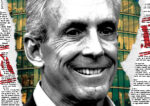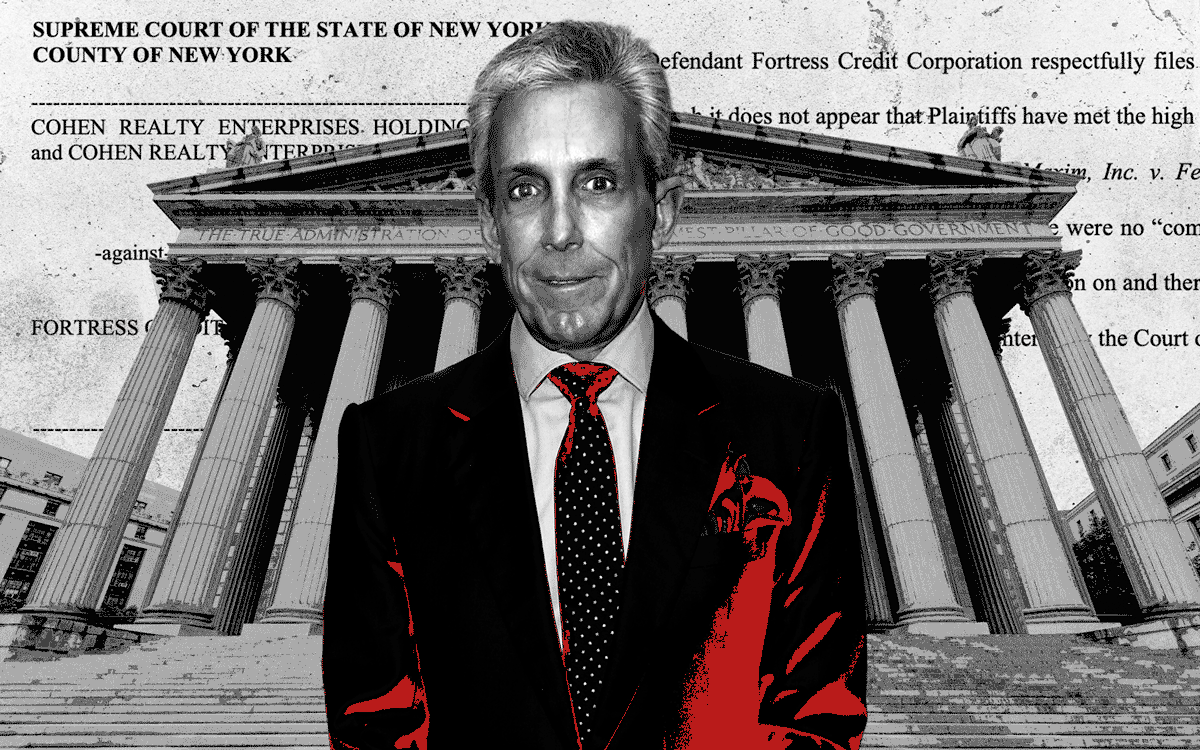The on-again, off-again foreclosure auction dogging Charles Cohen is back on.
Fortress Investment Group, the lender pursuing the $534 million UCC foreclosure, won the right to proceed with an auction of Cohen Brothers Realty’s equity interest in a grab bag of assets, according to a decision filed last week.
A New York Supreme Court judge approved a Nov. 8 auction date.
The New York-based landlord postponed the auction in June when the judge ruled Fortress’ plan wasn’t commercially reasonable, a standard set by the Uniform Commercial Code.
Cohen had pushed to cancel the auction entirely, arguing that it had never defaulted on the $534 million loan because it had reached an agreement with Fortress in December to restructure the debt.
The judge denied that motion and in the same June decision gave Fortress a second shot at proposing a “commercially reasonable auction” plan.
At a conference last week, Judge Joel Cohen ruled Fortress had met the mark.
“I’m persuaded, based on what I’ve seen, that it has not been shown to be commercially unreasonable,” the judge said, according to a transcript. “The auction can go forward as scheduled.”
The auction is expected to be the largest UCC foreclosure ever.
The collateral is sprawling, including the companies that control the Design Center of the Americas, and Le Méridien hotel in Dania Beach, Florida; a Westchester redevelopment site formerly known as the Doral Arrowwood; 50 bleeding movie theaters in the U.S. and U.K. and Tower 57, a Midtown office building in default on its ground lease and which Cohen asked his landlord to take back last year.
After the judge denied Cohen’s motion to kill the auction, the landlord’s legal team pushed for an early 2025 date, arguing Fortress’ November 8 proposal wouldn’t extend enough time for bidders to familiarize themselves with the collateral and find financing.
In short: the process was “too short” to pull the top dollar bids Cohen would need to pay off his debts, the firm’s attorney Kevin Nash said ahead of the decision.
Fortress’ attorney Lindsey Harris during the conference speculated Cohen had alternative motives for the delay, according to the transcript.
Cohen was racking up $7 million in interest each month, she alleged, and it was less likely that more time would boost bids by that much each month than merely saddle the firm with more debt that the sale of the collateral would be unable to offset.
“Wow,” the judge said. “So that’s assuming a fairly risky game on [Cohen’s] side.”
“They would rather expand the debt and potentially be responsible for all these increased costs, all on the assumption that even if they lose everything, they’ll be bankrupt anyway, so who cares?” he said.
“I think that’s plausible, yes,” Harris said.
Nash dismissed Harris’ speculation.
“There’s all these sinister motives being attached to the objection,” he said. “There isn’t any.”
Neither attorney immediately responded to additional requests for comment.
What’s yet to be seen is whether Cohen will need to cough up the $187 million personal guaranty Fortress sued to collect in March, before it filed to foreclose.
“I’m going to issue a written decision on that in due course,” the judge said at last week’s conference after hearing arguments from both sides.
Read more



